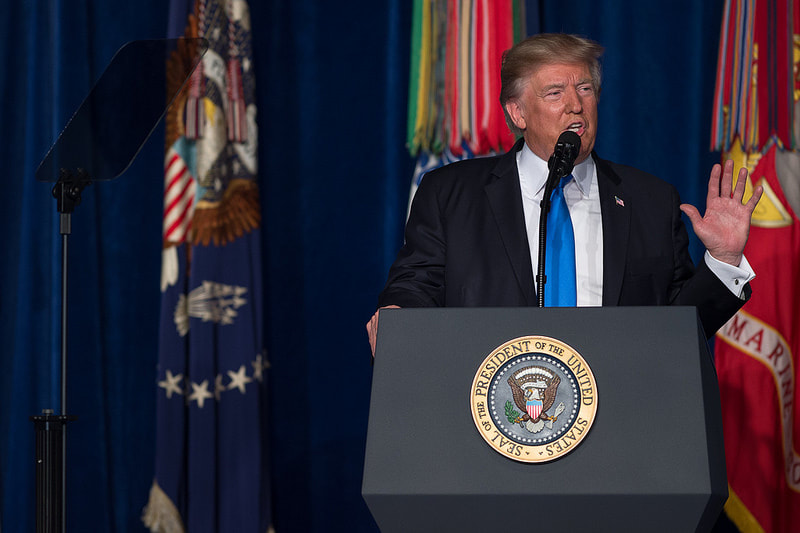| In his Phoenix speech Tuesday evening, President Trump sounded a troubling note on the North American Free Trade Agreement, saying he didn’t know whether it could be salvaged. “I think we'll end up probably terminating NAFTA at some point," he said, leaving us all to wonder whether he was just using a bargaining tactic at the start of negotiations or signaling an inevitable policy direction. |
| | Either way, the uncertainty should be troubling for Utahns. Utah is on the verge of establishing an inland port, which would create a customs center and distribution chains, including an e-commerce network, that supporters say could attract major manufacturers and drive growth in the state’s economy for decades. The state’s central location in the West and its transportation links to the nation and the world (including three non stop flights to European capitals and many more to Mexico and Canada) may make it ideal for such a thing. All the talk about scuttling trade agreements (South Korea is balking at U.S. efforts to renegotiate its agreement with the U.S.) and about the alleged harm caused by trade deficits couldn’t come at a worse time. The U.S. Business Roundtable has reported that Utah had 387,200 jobs in 2014 related to trade. In a recent Deseret News op-ed, BYU political science professor Earl Fry said Utah companies last year exported $12 billion worth of goods to other countries. Mexico and Canada make up a large portion of this. Everyone here benefits in some way from this, if only through lower prices on a variety of goods. But that tends to get lost in the political rhetoric. And while trade could continue absent an agreement, the network of supply chains and preferential treatment NAFTA fostered could be harder to maintain. A newly published paper written by international trade attorney Scott Lincicome and published by the Cato Institute asks whether we are doomed to repeat the mistakes of the past. Those mistakes include a crippling tariff bill co-sponsored by Utah Sen. Reed Smoot during another age of burgeoning populism and worries over jobs. Many economists believe the Smoot-Hawley Act of 1930 deepened the Depression and made recovery much harder. “History is replete with examples of the failure of American protectionism,” Lincicome wrote. He cites numerous scholarly studies to demonstrate this, especially since the dawn of the 20th century. Protectionism has generally produced some benefits for a few, with far higher costs for the economy as a whole. “Unless our policymakers quickly relearn this history, we may be doomed to repeat it.” In Canada, they’re wondering whether the Trump administration wants to negotiate a revised NAFTA that benefits only the U.S. Lawrence Herman, a trade attorney and former diplomat, wrote an op-ed in the Globe and Mail this week that wondered whether Canada should prepare for life without an agreement with its North American neighbors. He contrasted Trump’s statements with that of Ronald Reagan, who as a candidate for president in 1979 said such an agreement was needed because “We live on a continent whose three countries possess the assets to make it the strongest, most prosperous and self-sufficient area on earth.” Until now, leaders of both parties in the U.S. supported that vision. But to be fair to Trump, he wasn’t the only candidate last year blaming free trade agreements for the loss of jobs. The debate over NAFTA’s effectiveness is probably endless, and it has been exacerbated by the after-effects of the great recession. Many economists will tell you there are so many other factors involved in the loss or creation of jobs, from inflation to currency values, that it’s hard to pinpoint one agreement’s impact. But the debate over free trade is not so unsettled. It is good for economies, jobs and consumers. At the moment, no one is proposing a massive increase in tariffs, but the president has hinted at raising steel tariffs, which has U.S. automakers worried, and he recently added tariffs to Canadian lumber. Nearly 90 years ago, when Congress was debating Smoot-Hawley and special interests were jumping in, demanding their own protections (as always happens), 1,028 economists signed a letter urging President Herbert Hoover to veto it. He didn’t. The question is whether we learned anything from that. |


 RSS Feed
RSS Feed

